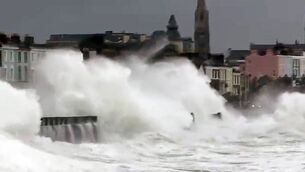Secret tapes in du Plantier case unlikely to be released
The National Union of Journalists has urged members who suspect their calls may have been recorded to seek copies of what the High Court heard yesterday were “hundreds” of recordings amid fears that sources could be exposed and left vulnerable by the contents of the calls. UCD law lecturer TJ McIntyre also urged journalists to take this action, advising them to make a formal “subject access request” to An Garda Síochána under sections 3 and 4 of the Data Protection Act.
However, in a statement, the office of the Data Protection Commissioner said the legal right of access to a copy of personal data held by any organisation might not apply in this case.













